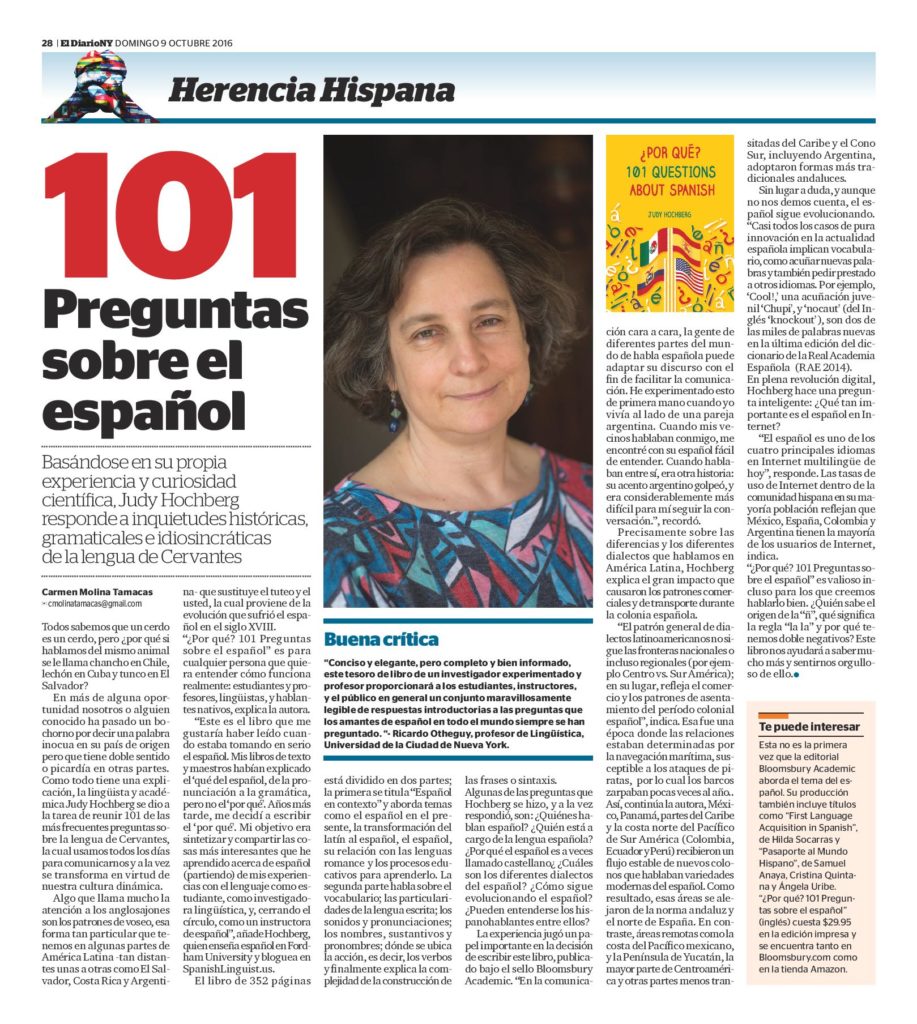In an earlier post I summarized some asymmetrical differences between Spanish and English: the many distinctions in meaning seen in Spanish but not English, such as ser vs. estar (both meaning ‘to be’), and some seen in English but not Spanish, such as his vs. her vs. their (Spanish su). A recent thread on r/Spanish brought to mind another asymmetry of the second type: the Spanish verb esperar, which can mean either wait (for) or hope:
- Espero el autobús ‘We’re waiting for the bus.’
- Espero que venga ‘I hope he comes.’
Comments in that thread pointed out an interesting difference between the two uses of esperar: when used without a direct object, esperar can only mean ‘to wait’. This means that, for example, Tienes que esperar cannot mean ‘You must hope.’ The only way to express this is via a work-around, such as Tienes que tener esperanza — literally, ‘You must have hope.’
I love it that after spending decades with Spanish I can still come across such fresh nuances of meaning and usage. This is, of course, a “glass half full” reaction — perhaps I should be frustrated that there is always more to learn. But for me, this richness is part of what makes languages interesting.
